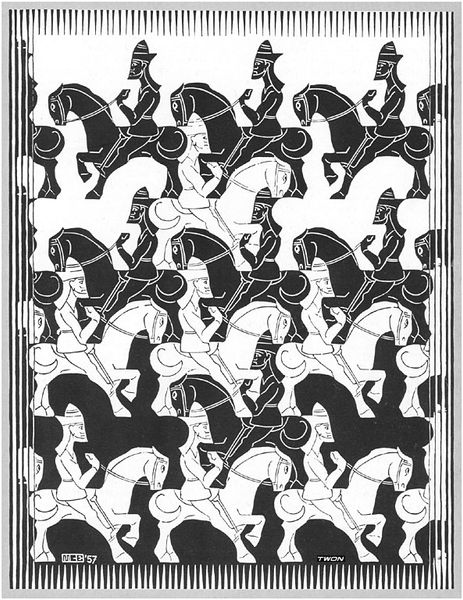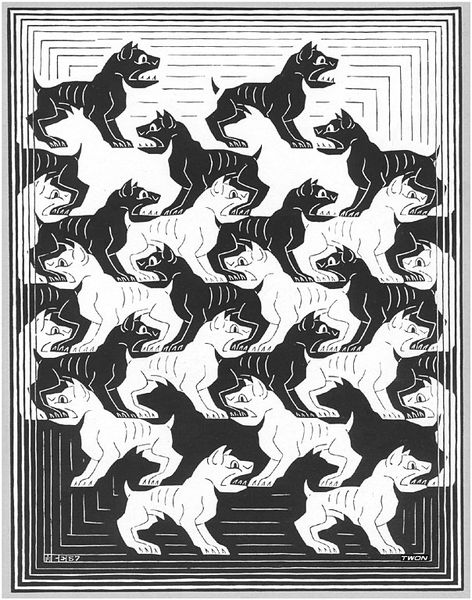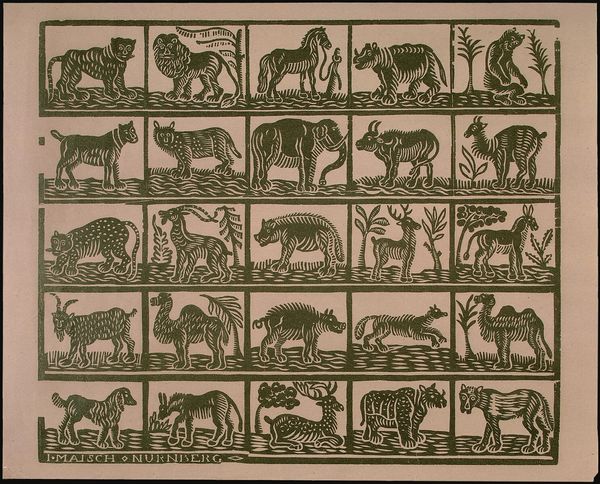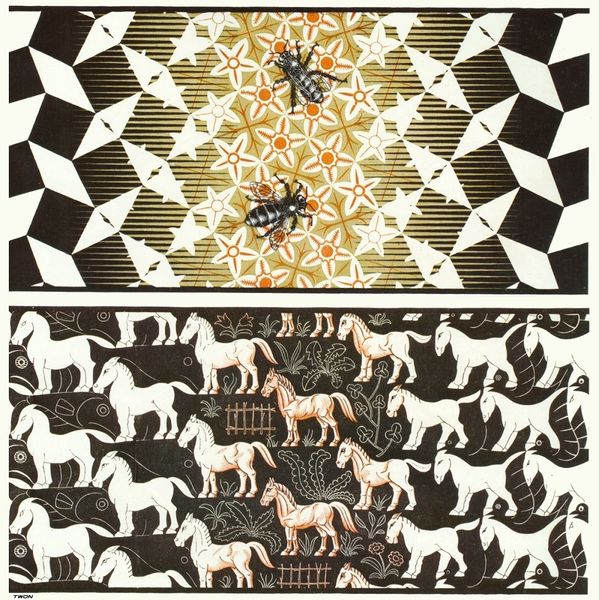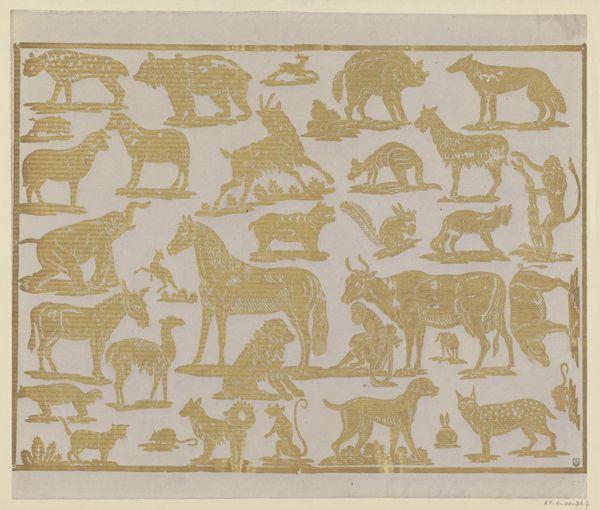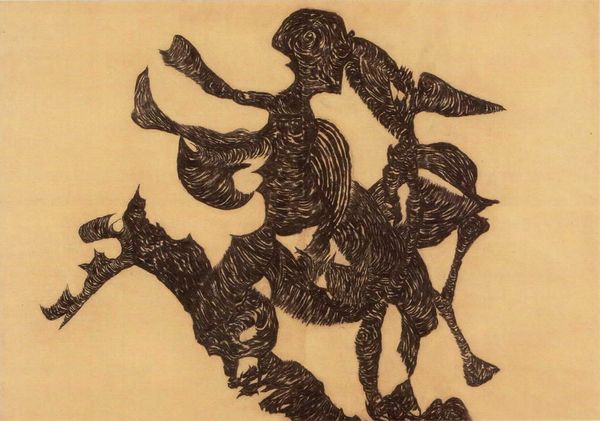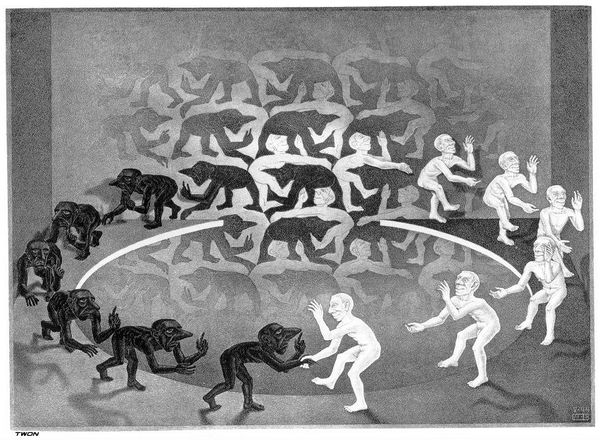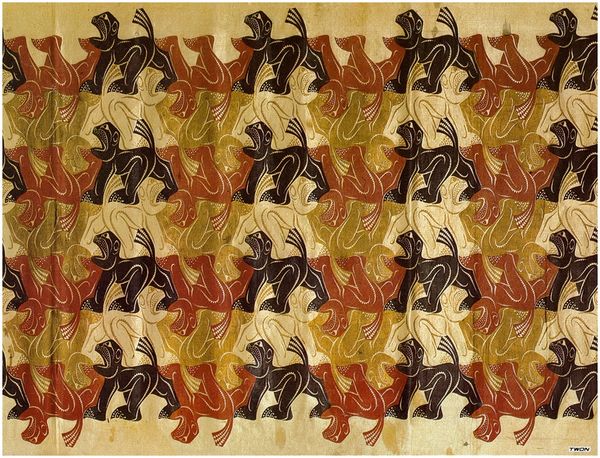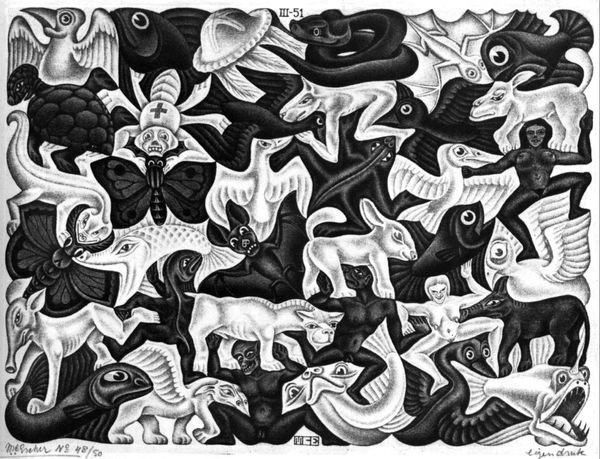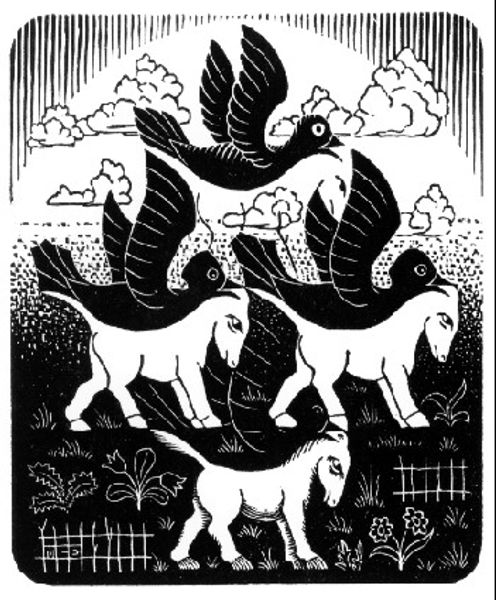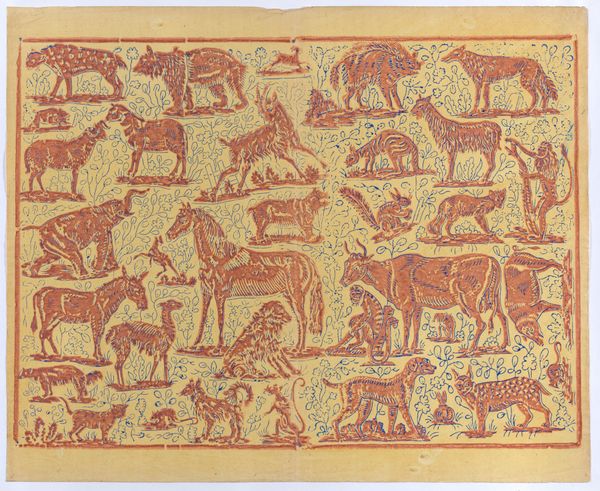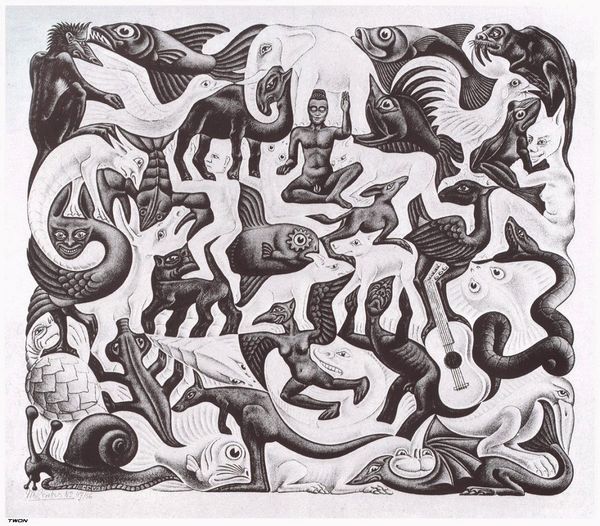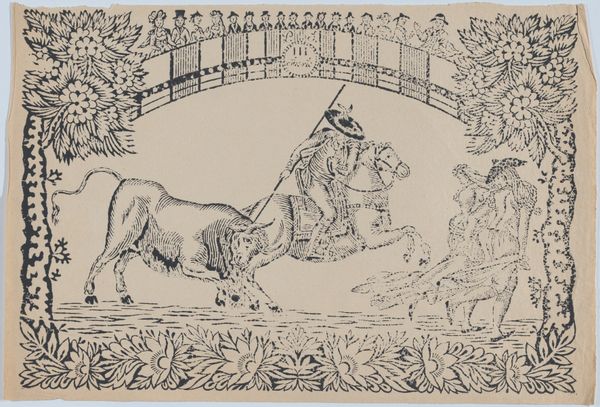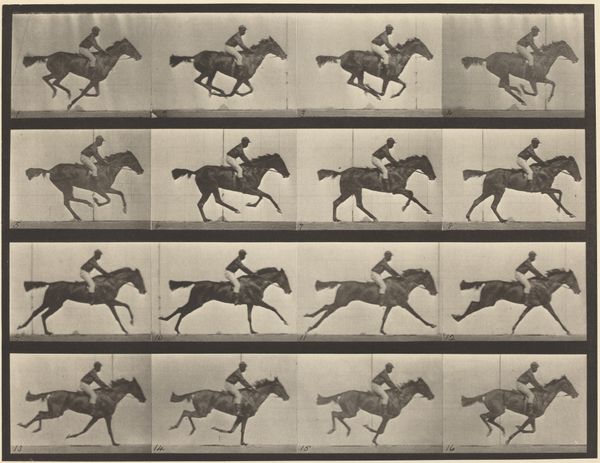
Copyright: M.C. Escher,Fair Use
Curator: "Metamorphosis III," this is excerpt five, a print made by M.C. Escher in 1968. It's quite long and narrow, printed with the intaglio technique, depicting several animals. It is rendered in monochrome, graphic, and reminiscent of post-impressionism. Editor: What strikes me is the regimented yet dreamlike quality, a patterned march into the surreal. The strong contrasts draw you in. It is interesting to observe how his fish gradually morph into horses! Curator: Yes, it encapsulates Escher's fascination with transformation. The fish, often symbols of the unconscious and fluidity, shift into the earthbound horse, representing perhaps rationality or even the mundane. Editor: Interesting observation. Thinking of historical precedents, I cannot help but see resonances with the sociopolitical moment of '68, with themes of changing social orders and blurred boundaries that feel relevant. This was also during second-wave feminism, with its concern of liberation of women to live as autonomous persons—Escher challenges this traditional association, perhaps unintentionally. Curator: Very interesting to contextualize in that time period. Beyond politics, though, the symbolic weight remains powerful, speaking to internal psychological processes. The black and white scheme heightens the effect. One cannot stop to observe and examine how he takes one geometric pattern and little by little transform its meaning! Editor: Absolutely. And this process of metamorphosis itself is culturally charged. The transition reflects our own perpetual change of identity. Here we can examine how he took patterns from animal depiction and turned them around, like the birds turning to tessellated shapes. This transition creates not only a geometric change but a narrative. Curator: A journey of identity that's beautifully, if methodically, visualized. Its methodical aspect becomes itself a point of reflection about patterns, geometric repetitions that shape human thought through imposed conventions. Editor: Agreed. Thinking about visual transitions can empower us with a certain cultural memory of imposed conventions to resist structures and be open to our potential transformations! Curator: A very inspiring piece by Escher. I am captivated. Editor: Me too; it’s left me pondering the shifting shapes of the world around us.
Comments
No comments
Be the first to comment and join the conversation on the ultimate creative platform.
